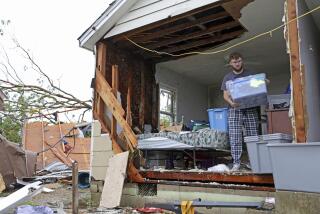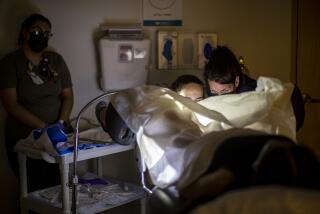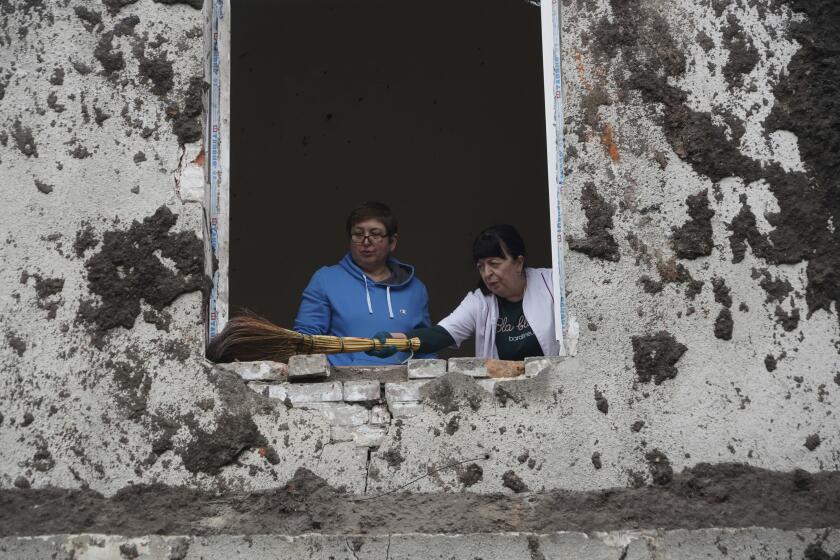5 British soldiers slain by man in Afghan police uniform
The United Nations is temporarily pulling hundreds of staff members out of Afghanistan while it reviews security arrangements in the wake of an attack by militants on a Kabul guesthouse last week that killed five U.N. employees, officials said today.
U.N. officials said staff members, scattered in dozens of dwellings in Kabul and around the country, were in many cases protected only by a few Afghan security guards.
Taliban spokesmen said the U.N. was specifically targeted in the Oct. 28 attack because of its involvement in plans for a Nov. 7 presidential runoff election, which has since been canceled. Officials have conducted a security review since the attack and have determined that arrangements for many staffers are inadequate.
The U.N. has about 5,600 employees in Afghanistan, about 80% of them Afghan citizens. Roughly 12% of the total, or about 672 employees, are being moved in what officials characterized as a “limited, short-term” relocation.
In many cases, staffers will be back in a matter of weeks, said Adrian Edwards, a spokesman for the U.N. mission in Afghanistan.
“The U.N. is categorically not withdrawing from Afghanistan,” he said, adding that major programs would not be affected.
Most of those leaving Afghanistan will be foreign staffers, but some Afghan employees will also be moved to more secure locations.
The U.N. move came a day after the shooting deaths of five British soldiers at a checkpoint in the volatile south, raising concerns about the possible infiltration of local security forces by militants. British officials blamed a “rogue” Afghan policeman.
Zemeri Bashary, spokesman for the Afghan Interior Ministry, confirmed that the assailant was wearing a police uniform but said it was too soon to say whether he was a member of the force.
The latest deaths, which occurred in the Nad Ali district of Helmand province, raised the number of British troops killed since the 2001 invasion to 229 and were likely to fuel debate about the country’s continued involvement in the war. Britain is the second-largest contributor of forces to Afghanistan after the U.S., with 9,000 here.
Concerns have been raised before about the quality of the Afghan national police, or ANP, some of whose members have been accused of corruption, drug trafficking and other abuses. The shooting happened a month after a policeman turned his gun on American troops during a joint patrol in Wardak province, killing two.
“The problem could get more challenging as we try to accelerate recruiting, so we will have to think hard about finding ways to prevent future recurrences,” Michael O’Hanlon, a security expert with the Brookings Institution in Washington, said by e-mail. “It argues for steps like creating biometric databases and even more carefully screening applicants.”
A key part of the strategy in Afghanistan is to build competent army and police forces that can eventually take over security responsibilities.
A British Defense Ministry spokesman said the dead soldiers, three with the Grenadier Guards and two with the Royal Military Police, were part of a team mentoring the police in Helmand, a center of the Taliban insurgency in the south and the focus of a major U.S. offensive over the summer.
British Prime Minister Gordon Brown told Parliament that the Taliban had claimed responsibility for the attack.
Six more British soldiers and two Afghan police officers were wounded in the attack, according to a statement issued by the Afghan Interior Ministry and North Atlantic Treaty Organization forces. The assailant fled and his whereabouts was not known, officials said.
This has already been the deadliest year of the war for the U.S. and its allies. According to the independent website icasualties.org, at least 459 foreign troops have been killed, including 92 Britons.
At a news conference in Kabul, the capital, former Foreign Minister Abdullah Abdullah said the attack was an example of the government’s failure bring security to the country despite the help of international forces.
Abdullah was to face President Hamid Karzai in the runoff election, but quit the race, citing fears of fraud. Afghan election officials then proclaimed Karzai the winner. Under pressure from Western officials, Karzai on Tuesday promised to form an inclusive government. But Abdullah said Wednesday he would not join it.
He said the country’s Independent Election Commission, which he has repeatedly accused of bias in favor of Karzai, had no legal mandate to declare a winner.
But he said he would not challenge the commission’s decision in court. “The process has completed itself with that final, illegal decision,” he said.
--
Special correspondent Karim Sharifi contributed to this report.
More to Read
Start your day right
Sign up for Essential California for news, features and recommendations from the L.A. Times and beyond in your inbox six days a week.
You may occasionally receive promotional content from the Los Angeles Times.






